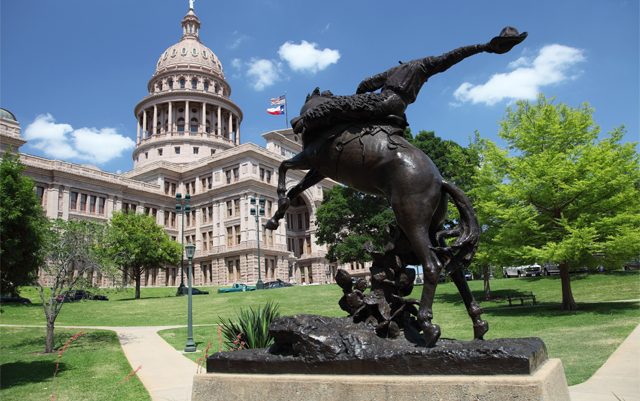Reasons for decriminalizing cannabis are generally always pretty similar – it will reduce the number of people who are incarcerated, therefore reducing the tax burden of those sitting in prisons and jails; it also creates a new stream of revenue via fines and helps to ensure that a marijuana possession charge will never stand between a youth and his or her future chance at success.
One of the lesser mentioned factors is the impact that continuing prohibition has on businesses – especially those who have drug-free hiring policies and have to deny otherwise hirable applicants, simply because of a marijuana charge from their youth.
Considering the growing acceptance of marijuana use more states, and even smaller municipalities, have started to lean towards a policy of decriminalization – which is a great start for those who are not prepared to implement legalization (or cannot easily do so, in the cases of counties and cities). The state of Texas is one of the most recent states to see decriminalization legislation make its way through Congress – however, in 2015 the bill failed to gain enough momentum to land itself on the Governor’s desk.
In the upcoming session, a decriminalization bill appears to have a much better chance than it did before. The support for creating a system where offenders are fined, rather than arrested and incarcerated, appears to be much stronger this year – all because there has been a realization of how much damage continuing prohibition will cause for the newest generations. State Representative Jason Isaac is one of many who believe that the time for change has come.
“It may make them more dependent on the government,” he said, “and that is the last thing that we want.”
By taking away career opportunities from those who would be otherwise qualified, the government could end up paying a bigger price in the end. Without employment, people rely on programs such as SNAP (food stamps), HUD and other government programs that ensure that they are able to live – at least somewhat – comfortably. If making one simple change – taking marijuana charges and turning them into a civil fine (similar to a traffic ticket) could ensure that no one lost out on these opportunities simply for indulging in some cannabis, isn’t it worth doing?
“Drug convictions and things like this are going to derail them,” Moody said. “If you create an unemployable class on young people, that necessarily would create a negative impact on the economy as whole.”
With a number of lawmakers looking at submitting decriminalization bills in the coming legislative session, things are looking up. They even have a new ally that they did not have last year – the Texas Association of Business, who are in favor of reducing penalties for a number of different non-violent crimes, including marijuana charges. They realize that some charges can look much worse on paper than they really were. A felony looks bad, whether it was for robbing someone at gunpoint or having a large amount of cannabis in your trunk. Hopefully the majority of lawmakers are prepared to make this change – and hopefully the Governor will be prepared to sign any legislation that may end up on his desk this fall.







When will submission time come around this fall for the bill?
The next legislative session isn’t until January 10,2017
Marijuana will become legal and when it does anybody convicted of having it will have there slate cleaned. We have the numbers all we need to do is start voting out candidates that are pro prohibition starting with our diaper wearing governor Gregg Abbot.
To me, alcohol is more dangerous. Legalize, decriminalize, regulate, tax. Use proceeds for highways, schools. I personally want to invest in stock. It will happen, so better sooner than later.